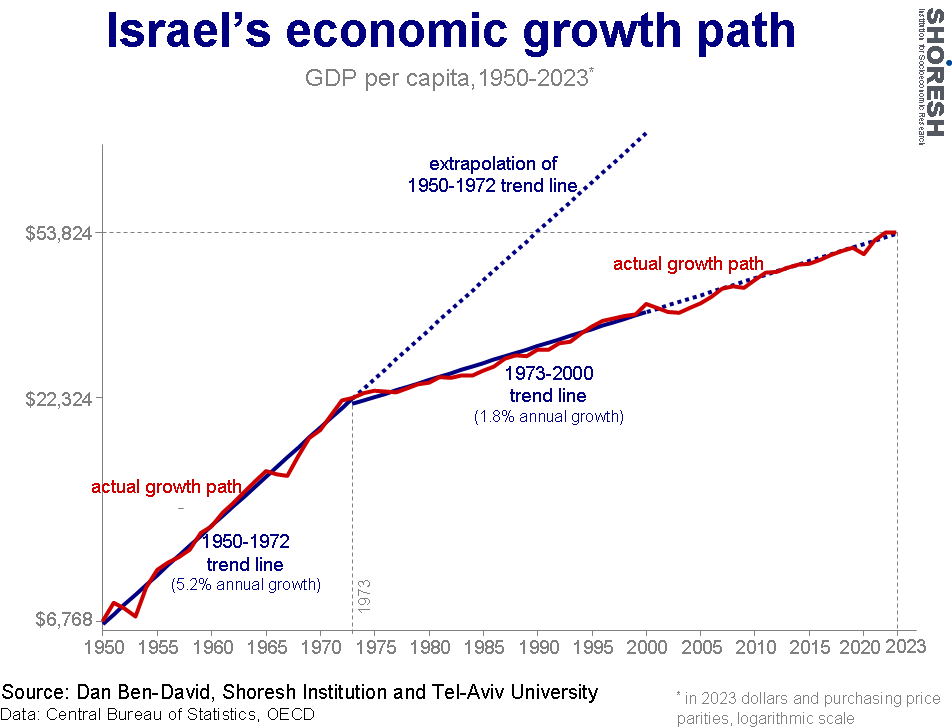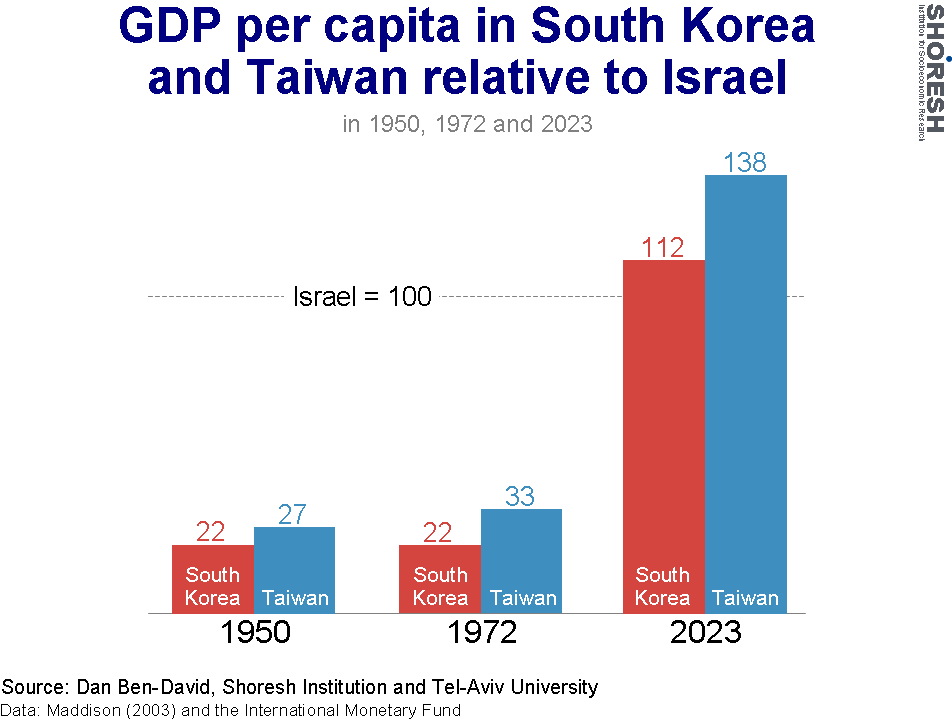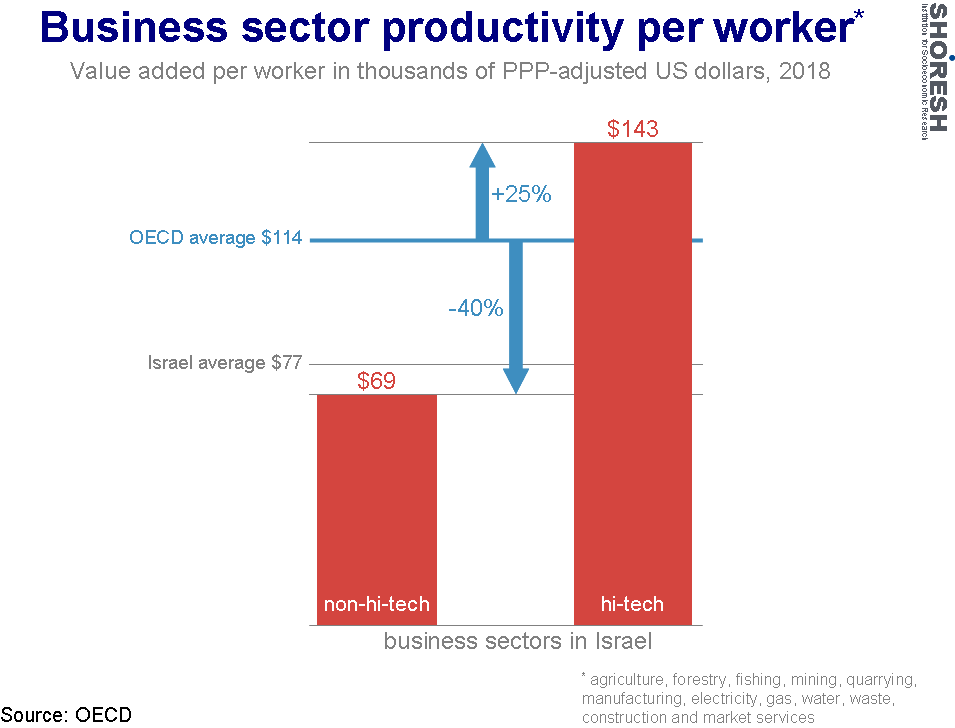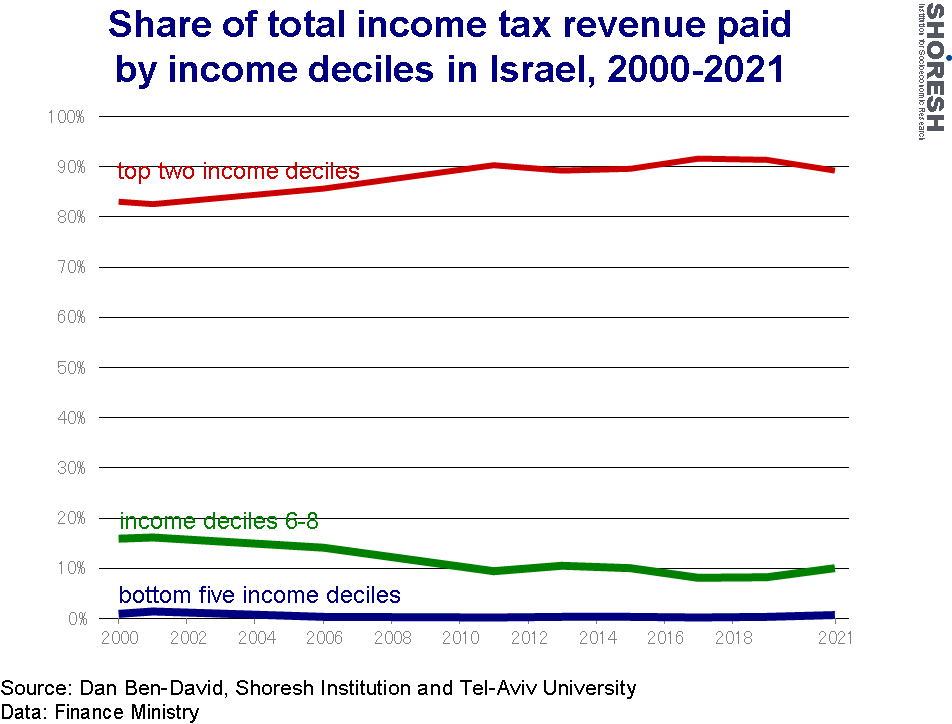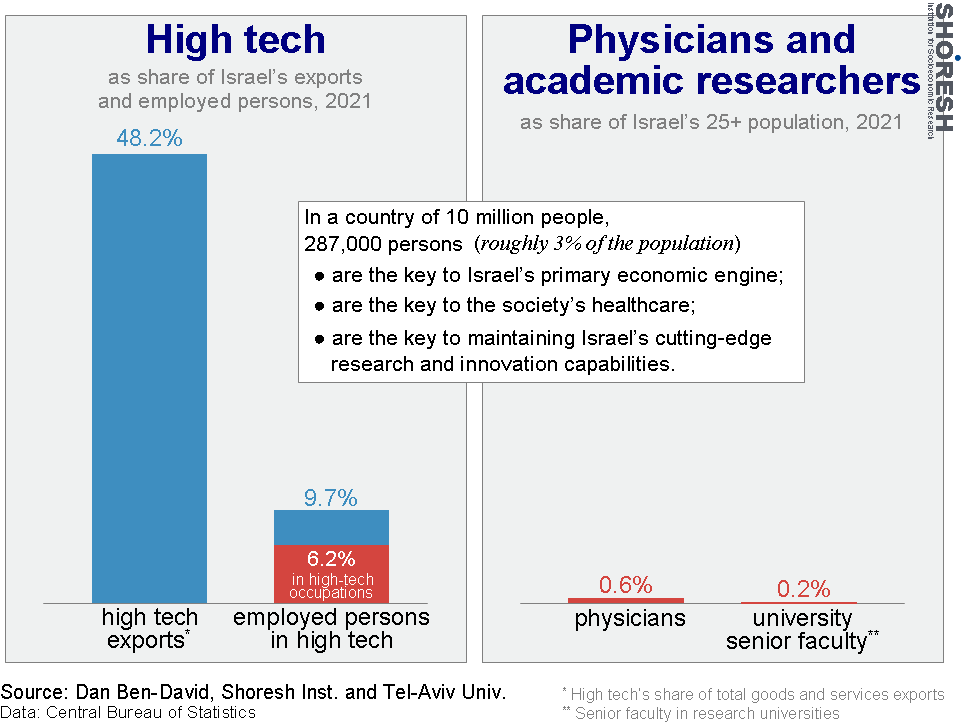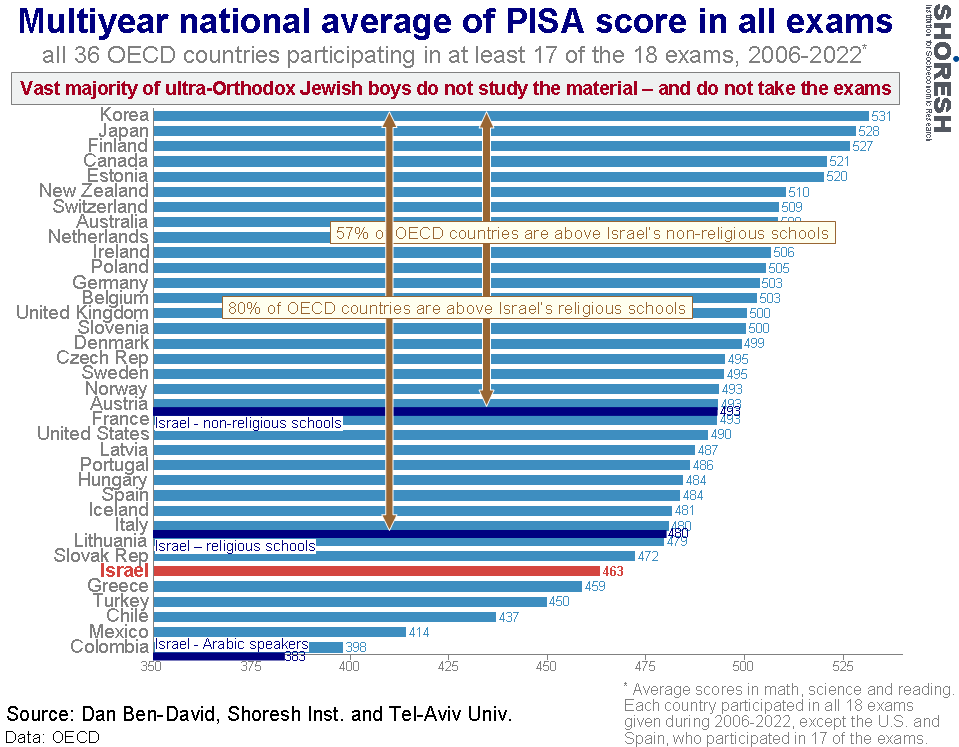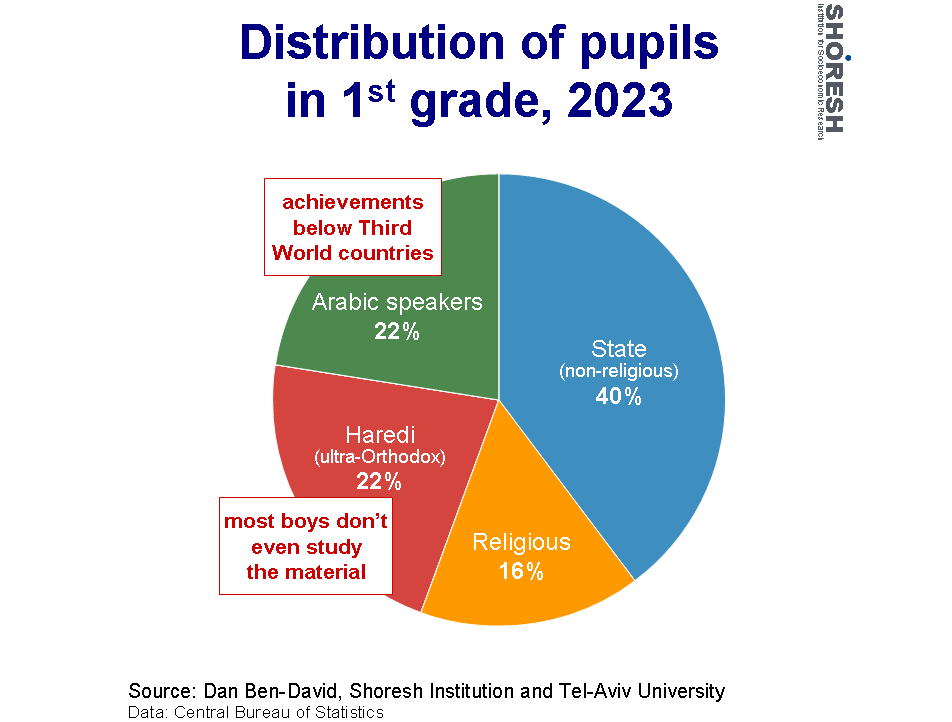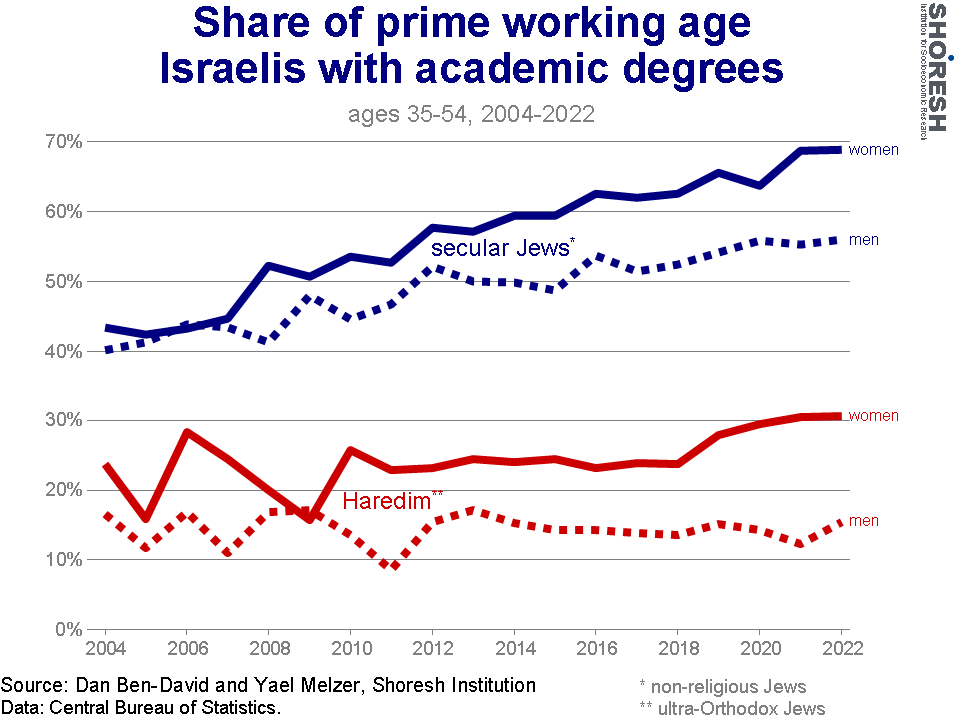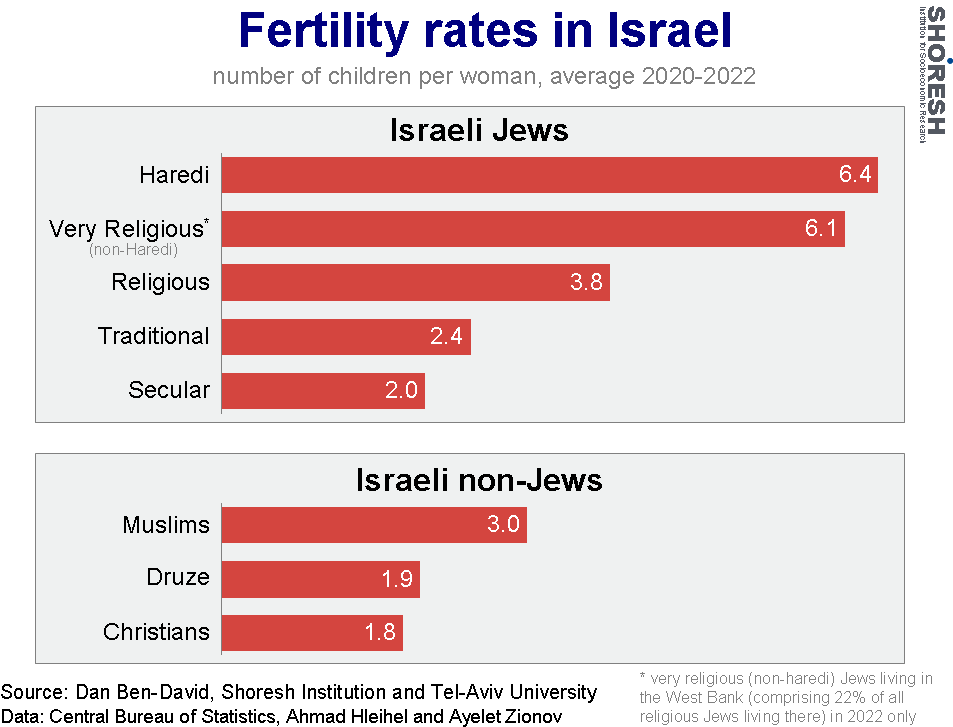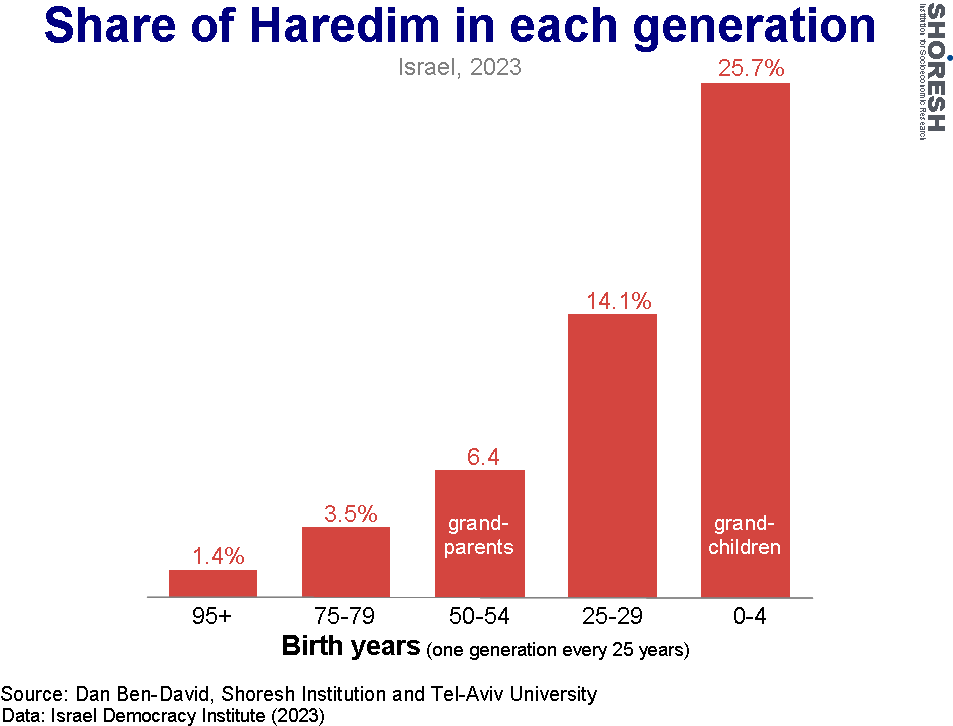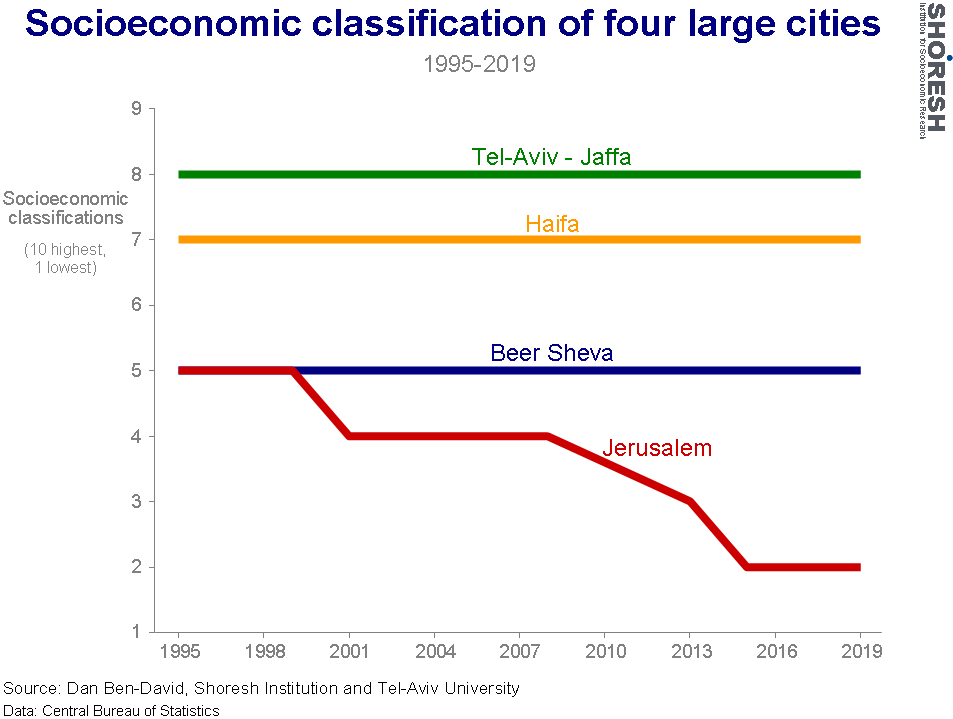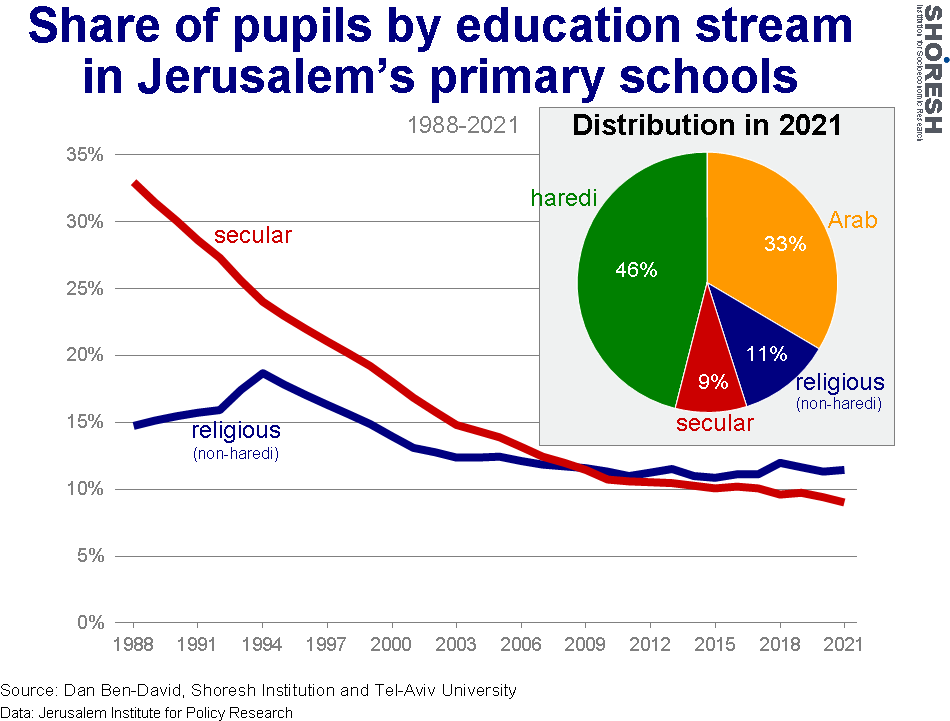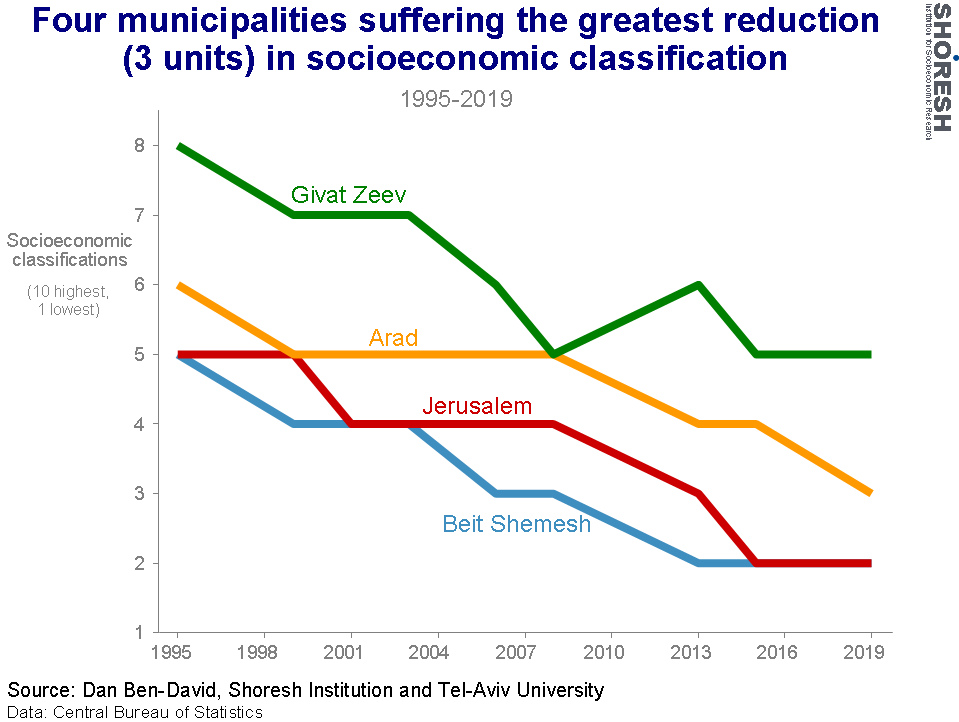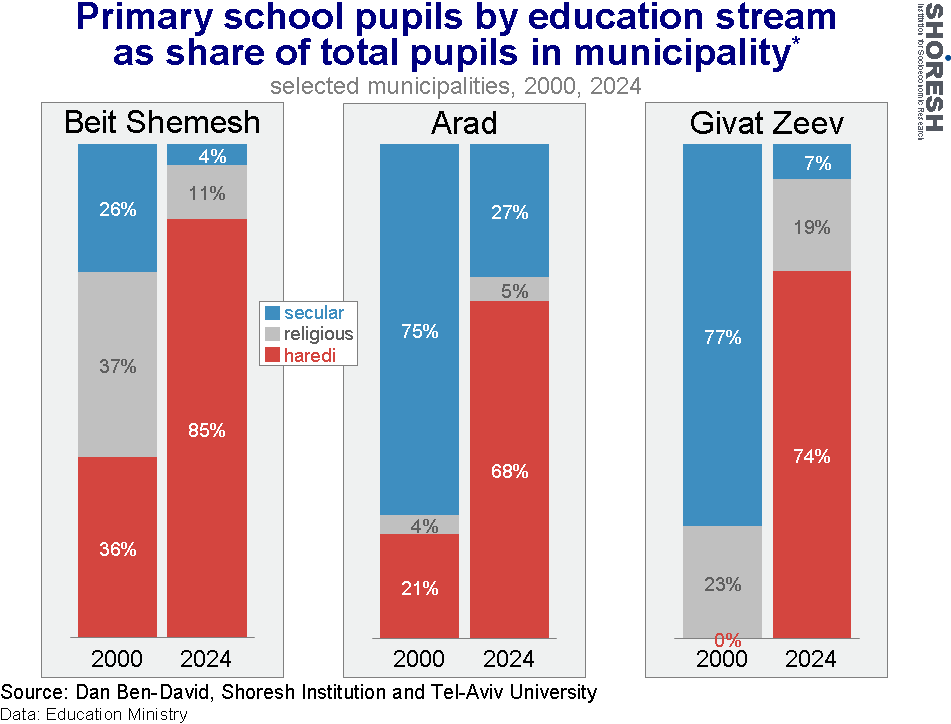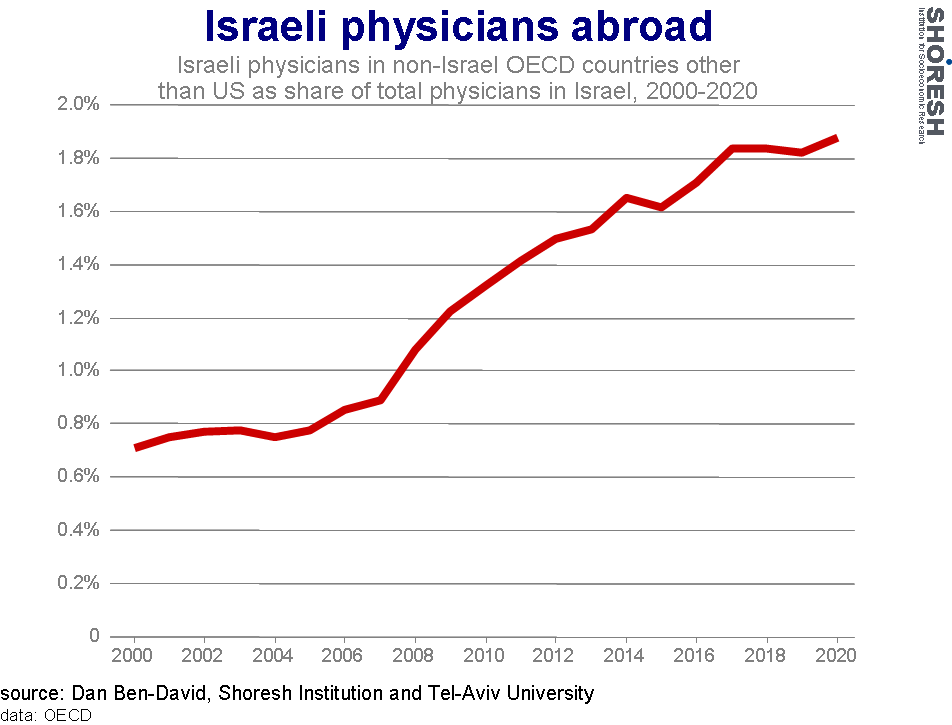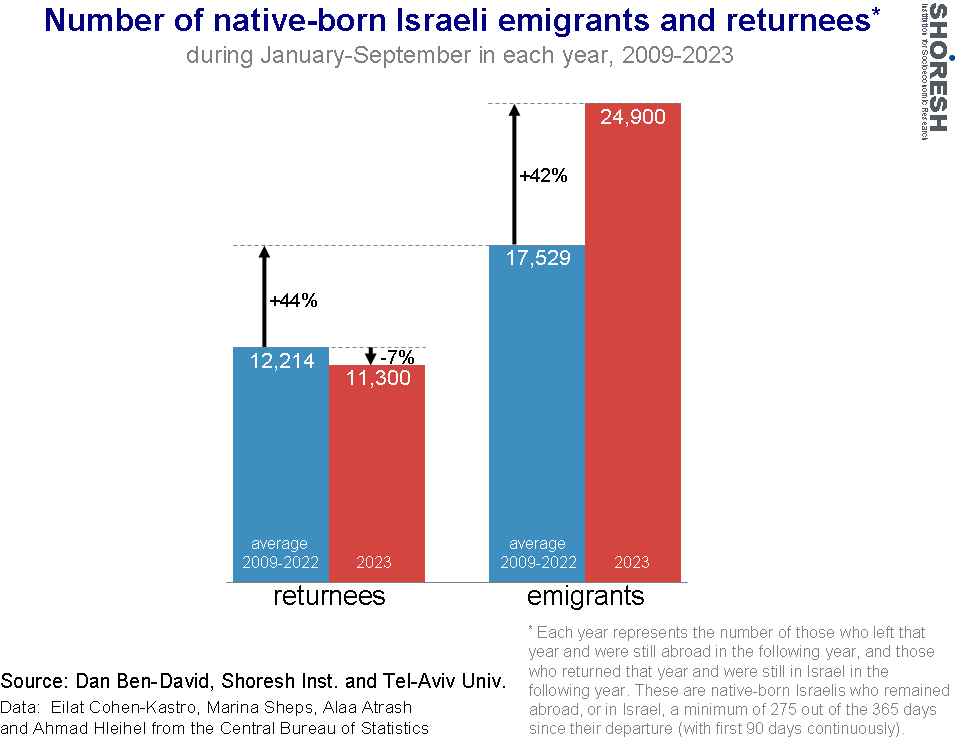The Socioeconomic Threat facing Israel
Ensuring Israel’s future
Four-point Shoresh Institution framework
Objective: Returning Israel to a sustainable long run trajectory
Ensuring faster economic growth, lower poverty, and Israel’s ability to defend itself
1. Overhauling the education system
Basic tenets of such an overhaul need to include:
- A significant upgrade of common core curriculum, funding only fully compliant schools;
- Fundamental change the way that teachers are chosen, taught and compensated;
- Systemic reform of the education ministry and its methods of operation.
2. Overhauling governmental budgetary priorities
including:
- Discontinuation of benefits that incentivize non-work lifestyles;
- Full budgetary transparency so that the public will know what are Israel’s actual national priorities – and among them, who the government supports and how much they receive.
Objective: Safeguarding the above changes
Ensuring faster economic growth, lower poverty, and Israel’s ability to defend itself
3. Electoral reform
- Cabinet ministers with expertise in their ministry’s realm within an executive branch able to implement its decisions and enforce the law;
- Creation of effective checks and balances between the three branches of government.
4. Drafting and ratifying a constitution
Setting in stone national foundations that will protect the country and the rights of its citizens, and make it difficult for anyone in the future to set it back.
Israel's moment of truth
Showing root (shoresh) socioeconomic-demographic challenges to top Israeli leaders and presenting them with the four-point Shoresh Institution framework (see below) that they can unite around to ensure Israel’s future


















Featured Publications
Haredi families living in Israel’s periphery live differently than those residing in the country’s center
Housing, Transit Mobility, and Fertility: Differences Between Haredi Households in Israel’s Periphery and its Center
Pavel Jelnov
January 2026
More Older Israelis are Working – But Deepening Economic Inequality in the Golden Years
Gaps in the golden years: employment and income trends in Israel
Ayal Kimhi and Tomer Siedner
December 2025
Be in the know
Get the big-picture perspectiveSupport Our Work
Invest in research for the futureFeatured Video
Israel’s Moment of Truth
Prof. Dan Ben-David
December 2024
